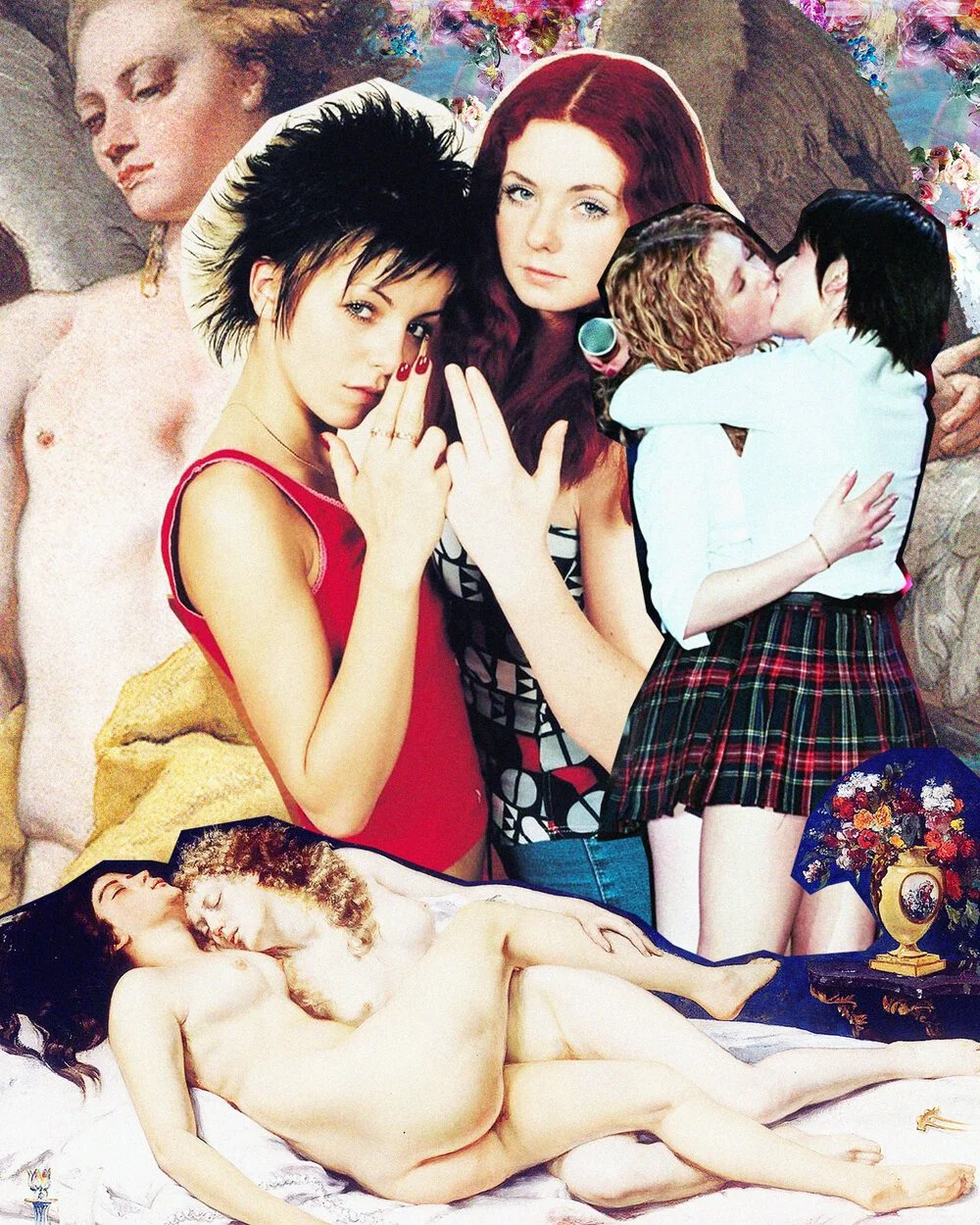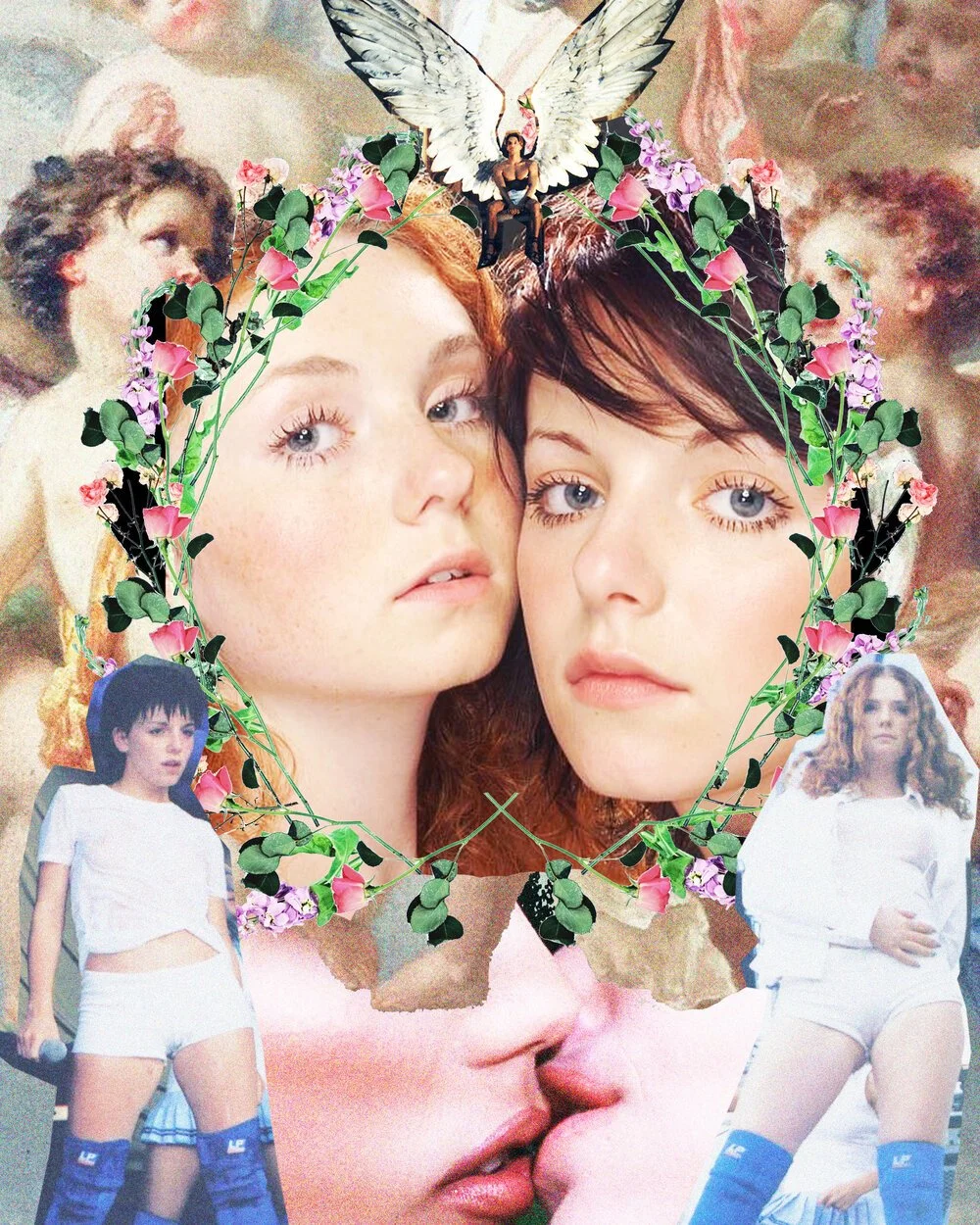Culture Slut - Show Me Love: 19 Years of t.A.T.u.
2002 sometimes feels like a completely different world; only half of the UK had internet access, the Spice Girls were on an indefinite hiatus and the pop crown was being passed to Girls Aloud, fresh off of Popstars. LGBTQ+ teens had yet to take a strong leap into mainstream TV and media, so they had to make do with the queer-coded subtexts of Robbie Williams’ videos and Sailor Moon (Uranus and Neptune, girlfriends or cousins?). Or maybe that was just me. We had no Love Simon gentle-romance stories, no Miseducation Of Cameron Post or Alex Strangelove, just the occasional fleeting glimpse of a gay corpse on Crime Scene Investigation, or, slightly better, a suspicious sex worker accused of murder on Law and Order: Special Victims Unit (hey, at least they had lines.)
The only readily available medium for seeing anything remotely gay was MTV (you know, when it actually played music videos). Gay backup dancers and the occasional drag queen got to have sweaty cameos in over-the-shoulder shots of gyrating boy bands, but they rarely got centre stage. Christina Aguilera shocked the world with a passionate gay kiss featured in her 2002 music video for Beautiful, and it was regarded as a watershed moment for both the artist moving towards a more adult phase of her career, and of gay representation in pop culture. But there was a gay kiss that shook the world a few months before that. A kiss that wasn’t a fleeting shot in a show-reel of inspirational overcomings, a kiss that got it’s own video, its own song, its own band. I am talking, of course, about the video for All The Things She Said by TATU.
TATU were a Russian duo featuring Lena Katina and Julia Volkova, former child stars of Neposedy, swept into a new band by famous producer Ivan Shapovalov. They found success in Russia, and so tried their hand in Europe and the UK, releasing All The Things She Said in mid-August 2002. My God. What a moment. The music video was instantly infamous, deemed too explicit by the country’s morality police, which of course only drew people’s attention more. Featuring Katina and Volkova in school girl uniforms kissing passionately in the rain, the video was denounced as promoting lesbianism and paedophilia. TATU are acknowledged in the UK as mostly a one hit wonder, and much derision was heaped on them as being “inauthentic” and “shocking for the sake of being shocking”. It was theorised that they weren’t even real lesbians, just an amusing record company stunt, fame hungry kids being easily manipulated by sleazy business men who were just trying to get their rocks off. A good addition to the list of 00s summer hits, but nothing more. But I disagree.
___STEADY_PAYWALL___
TATU made a huge impact on me, and many others. TATU, in their explicit sexual performance awoke in me a kinship, a moment of like-meeting-like. I didn’t want to kiss girls, but they were gay, and so was I, and that was enough.
The video starts with gloomy rain and a crowd dressed in black peering accusingly through a dripping fence; matronly women look disappointedly at each other, a boy yells something at the two girls on the other side. Katina and Volkova run here and there, seemingly trying to find a way out, but they seem trapped, cornered. Eventually, despite protestations from the crowd, they kiss, not chastely, not fleetingly, but a long lip lock, lasting over two minutes.
When they finally draw apart, a way out appears to them, and they manage to walk away from the fence and the crowd into the weak sunshine, arm in arm. The visual is often put down as being just titillating, but for any gay kid, I think, the first time you see yourself, or someone like you on screen, its exhilarating and feels monumentally important. The lyric as well is more nuanced than the smut theorists would have you believe. Volkova speaks of being “in serious shit, I’m totally lost,” and how she wants to “fly to a place, just you and me, nobody else so we can be free.” This sentiment is shared by every queer kid of my generation. The homophobic murder of Matthew Shepard was global news in 1998. Section 28 (the banning of “promotion of homosexuality” in schools) was only beginning to be repealed in 2000. The Gay Panic Defence was (and still is, in many places) a legitimate justification for the murder of gay men. The escapist fantasy of TATU was a pervasive desire felt by the whole queer community. Often, isolation was the only form of safety for us.
The rest of the songs on their first album 200 KM/H IN THE WRONG LANE are equally as nuanced and produce a fully rounded queer pop record that I think is yet to be bested by a mainstream pop act. Not Gonna Get Us gives us a similar escapist fantasy. They sing about letting night fall around them “our guardian angel, we rush ahead, the crossroads are empty! Our spirits rise, they’re not gonna get us!” The music is urgent, exciting, you want to run with them, “lights from the airfield shining upon you” and the snow all around you as you make a break for it. You want to run and never look back. An immortal line from Stars reads “Are we in love? Do we deserve to bear the pain of this whole world?”
Another great track is Malchik Gay, which takes a different approach. This is a song from the perspective of a girl in love with her gay friend, “I wanna pull you closer but you leave me feeling frozen,” and how she longs to be held by him the way he holds his boyfriend. This is a perspective I has never heard in pop before, and yet it is such an integral part of the queer teenage experience, or at least it was in my day. Maybe things have changed now with the global connections made on apps and iphones.
TATU’s personal queer credentials might be debatable, especially in the light of Putin’s most recent gay purge, but I don’t think that can take away from the impact of their first record, and how it helped a generation of queer kids feel seen and inspired to mould pop culture in their own image. Even supposed sex positive or subversive pop stars now (looking at you, YUNGBLUD and Harry Styles) are still loath to put explicit gay sexuality in their videos. TATU pumped up the visibility, and had the nuanced emotions to hit it home. Nearly 20 years later, all I can do is quote my favourite line from All The Things She Said: “THIS IS NOT ENOUGH.”
Words & Art: Misha MN


